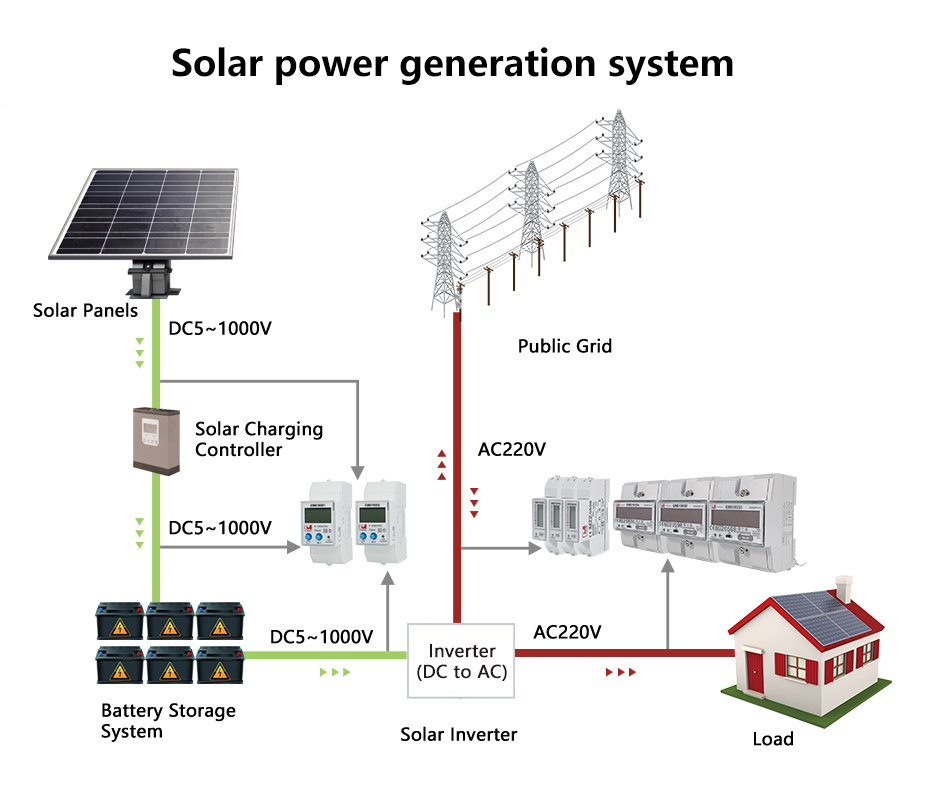
DC fast chargers are devices designed for the swift charging of electric vehicles. Within EV fast charger systems, energy meters play a critical role. They gauge the energy transferred between the charger and the electric vehicle during charging, ensuring precise billing and optimal charger performance. EM613001 EM613002 EM613005 EM619001 EM619002 etc, offer high-precision energy meters specifically designed to meet the demands of fast charging infrastructure.
1.Brief introduction
DC energy meter series including EM613001 ,EM613002, EM613005, EM619001, EM619002 etc
Range of operation 5 to 1000 V DC, 10 to 400V DC, 8 to 48VDC
Current: Imax 400 A, 600 A, 1000A, 2000A optional
Bi-directional energy metering optional
Rate: Four Tariffs with 8 Time Slots
Alarm function: over-voltage, over-current alarm, threshold can be set.
Event log: The device itself stores the last 20 records when overvoltage, undervoltage, and overcurrent occur
Display: LCD displays DC power, current, voltage, tariff power, data wheel display (time interval 5S), you can also turn pages by pressing an external button.
Backlight: Press the page turning button to light up the backlight, which is convenient for viewing data when the light is insufficient
Communication: Supports RS485/ wifi etc communication with protocol DTL645, which allows parameters setting and read or write power data
Certified with all regulations in Europe (MID, Eichrecht, France)
2.Comparation Sheet of DC Series

3. AC DC Energy Meter in Solar PV System

4. Why use an energy meter?
Billing and Cost Management: Energy meters are crucial for accurately measuring the amount of electricity consumed or supplied. In railway and electric vehicle DC fast chargers applications, billing based on accurate measurement and data trustworthiness is essential.
Efficiency Monitoring: They enable operators and system owners to monitor the efficiency of the electrical systems and optimize energy consumption.
Load Management: These meters assist in load management, especially for fast chargers and trains.
System Optimization: They provide data that can be used to optimize the overall system.
Environmental Impact Assessment: These solutions can also help assess the environmental impact of electric transportation.
Regulatory Compliance: Energy meters are required to meet regulatory and legal requirements. They ensure that operators and service providers comply with regulations related to energy consumption, billing accuracy, and environmental reporting.